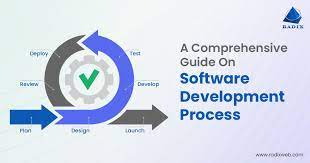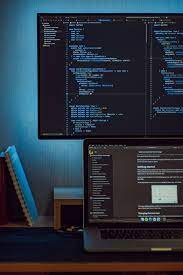Mastering the Art of Developing Software: A Comprehensive Guide
Developing Software: A Comprehensive Guide
Software development is a complex and rewarding process that involves designing, coding, testing, and maintaining computer programs. Whether you are a seasoned developer or just starting out, understanding the key steps in software development is essential for creating successful applications.
The Software Development Life Cycle
The software development life cycle (SDLC) is a framework that outlines the stages involved in creating software. The typical phases of the SDLC include:
- Planning: Define project goals, requirements, and scope.
- Analysis: Gather user needs and create system specifications.
- Design: Develop architecture, UI/UX design, and database structure.
- Implementation: Write code based on design specifications.
- Testing: Verify software functionality and fix bugs.
- Deployment: Release the software to users.
- Maintenance: Update and enhance the software as needed.
The Role of Programming Languages
Selecting the right programming language is crucial in software development. Popular languages like Java, Python, C++, and JavaScript offer different features and are suitable for various types of applications. Developers must choose a language that aligns with project requirements and team expertise.
Coding Best Practices
To write efficient and maintainable code, developers should follow coding best practices such as:
- Clean Code: Write clear, readable code that follows naming conventions.
- Modularization: Break down tasks into smaller modules for easier management.
- Error Handling: Implement proper error handling to prevent crashes and improve user experience.
- Version Control: Use version control systems like Git to track changes and collaborate effectively.
The Future of Software Development
Rapid advancements in technology continue to shape the future of software development. Trends like artificial intelligence, cloud computing, and DevOps are revolutionizing how applications are built and deployed. As developers adapt to these changes, staying updated with industry trends is key to remaining competitive in the rapidly evolving tech landscape.
In conclusion, developing software requires a combination of technical skills, creativity, collaboration, and adaptability. By following best practices and embracing innovation, developers can create cutting-edge solutions that meet user needs and drive business success.
5 Essential Tips for Effective Software Development
- Break down tasks into smaller, manageable units for easier development and testing.
- Use version control systems like Git to track changes and collaborate with others effectively.
- Write clean and concise code to improve readability and maintainability.
- Regularly test your software for bugs and performance issues to ensure quality.
- Stay updated with the latest technologies and best practices in software development.
Break down tasks into smaller, manageable units for easier development and testing.
Breaking down tasks into smaller, manageable units is a crucial tip in software development that can significantly improve the development and testing process. By dividing complex tasks into smaller components, developers can focus on one specific aspect at a time, leading to more efficient coding, easier debugging, and better overall organization of the project. This approach not only streamlines development but also enhances collaboration among team members, as each unit can be assigned and worked on independently. Additionally, breaking tasks into manageable units facilitates thorough testing of individual components, ensuring that each part functions correctly before integration into the larger system.
Use version control systems like Git to track changes and collaborate with others effectively.
Utilizing version control systems such as Git is essential in software development to track changes, manage codebase versions, and collaborate seamlessly with team members. By implementing Git, developers can easily review modifications, revert to previous versions if needed, and work concurrently on different parts of the project without conflicts. This practice not only enhances productivity but also ensures that the development process remains organized and efficient, leading to the successful delivery of high-quality software products.
Write clean and concise code to improve readability and maintainability.
When developing software, it is essential to write clean and concise code to enhance readability and maintainability. By following this tip, developers can create code that is easier to understand, troubleshoot, and modify in the future. Clear and well-organized code not only benefits the current development process but also streamlines collaboration among team members. Additionally, maintaining clean code practices helps reduce the likelihood of introducing errors or bugs during the coding process, ultimately leading to more efficient and effective software development outcomes.
Regularly test your software for bugs and performance issues to ensure quality.
Regularly testing your software for bugs and performance issues is crucial to maintaining high quality. By conducting thorough testing throughout the development process, you can identify and address any issues early on, preventing them from escalating into major problems later. Testing helps ensure that your software functions as intended, delivers a seamless user experience, and meets performance expectations. Prioritizing testing not only improves the overall quality of your software but also enhances customer satisfaction and trust in your product.
Stay updated with the latest technologies and best practices in software development.
Staying updated with the latest technologies and best practices in software development is crucial for staying competitive in the ever-evolving tech industry. By continuously learning about new tools, languages, and methodologies, developers can enhance their skills, improve efficiency, and deliver high-quality solutions that meet the demands of modern users. Embracing innovation and staying informed about industry trends not only fosters personal growth but also ensures that software projects remain relevant and impactful in a rapidly changing digital landscape.









